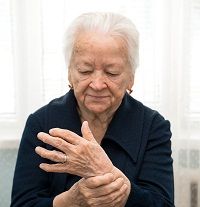Article
Misdiagnosis Likely Due to Virus, Rheumatoid Arthritis Symptom Overlap
Author(s):
Due to overlapping clinical and immunologic features between Chikungunya virus and rheumatoid arthritis' (RA) symptoms, Washington University in St. Louis researchers warn rheumatologists to be alert for potential misdiagnoses.

Due to overlapping clinical and immunologic features between Chikungunya virus and rheumatoid arthritis’ (RA) symptoms, Washington University in St. Louis researchers warn rheumatologists to be alert for potential misdiagnoses.
Spreading from Caribbean and Central and South America to FL, the mosquito-borne virus’ infection results in joint pain and swelling similar to RA that can last anywhere from days to over a year, according to a WUSTL press release.
“For now, good travel histories of patients are among the best diagnostic tools for physicians,” the study’s senior author, Wayne Yokoyama, MD, the Sam and Audrey Loew Levin Professor of Medicine at WUSTL said in the statement. “Recent travel to the Caribbean, Central and South America, Africa, India or other areas where the virus is prevalent should raise suspicions of CHIKV infection. In addition, the disease typically starts with high fever and abrupt onset of severe pain in the joints, which are not usually seen with RA.”
For their study, Yokoyama and his colleagues observed ten Americans infected by the CHIKV virus during a trip to Haiti in June 2014. Of the 10 participants, eight developed persistent symmetric polyarthritis, and several subjects experienced joint pain which made it difficult to walk.
However, Jonathan Miner, MD, PhD, a rheumatology fellow at WUSTL and the study’s lead author, said these participants would fulfill the American College of Rheumatology (ACR)’s criteria for RA.
Through a blood test, the investigators found both CHIKV and RA patients had elevated T cell levels. By utilizing a exclusive blood test only available through the Centers for Disease Control (CDC) and select research environments, the team was able to identify specialized antibodies in CHIKV patients.
“These overlapping clinical and immunologic features highlight a need for rheumatologists to consider CHIKV infection when evaluating patients with new, symmetric polyarthritis,” the authors reported in study results published in Arthritis & Rheumatology.





